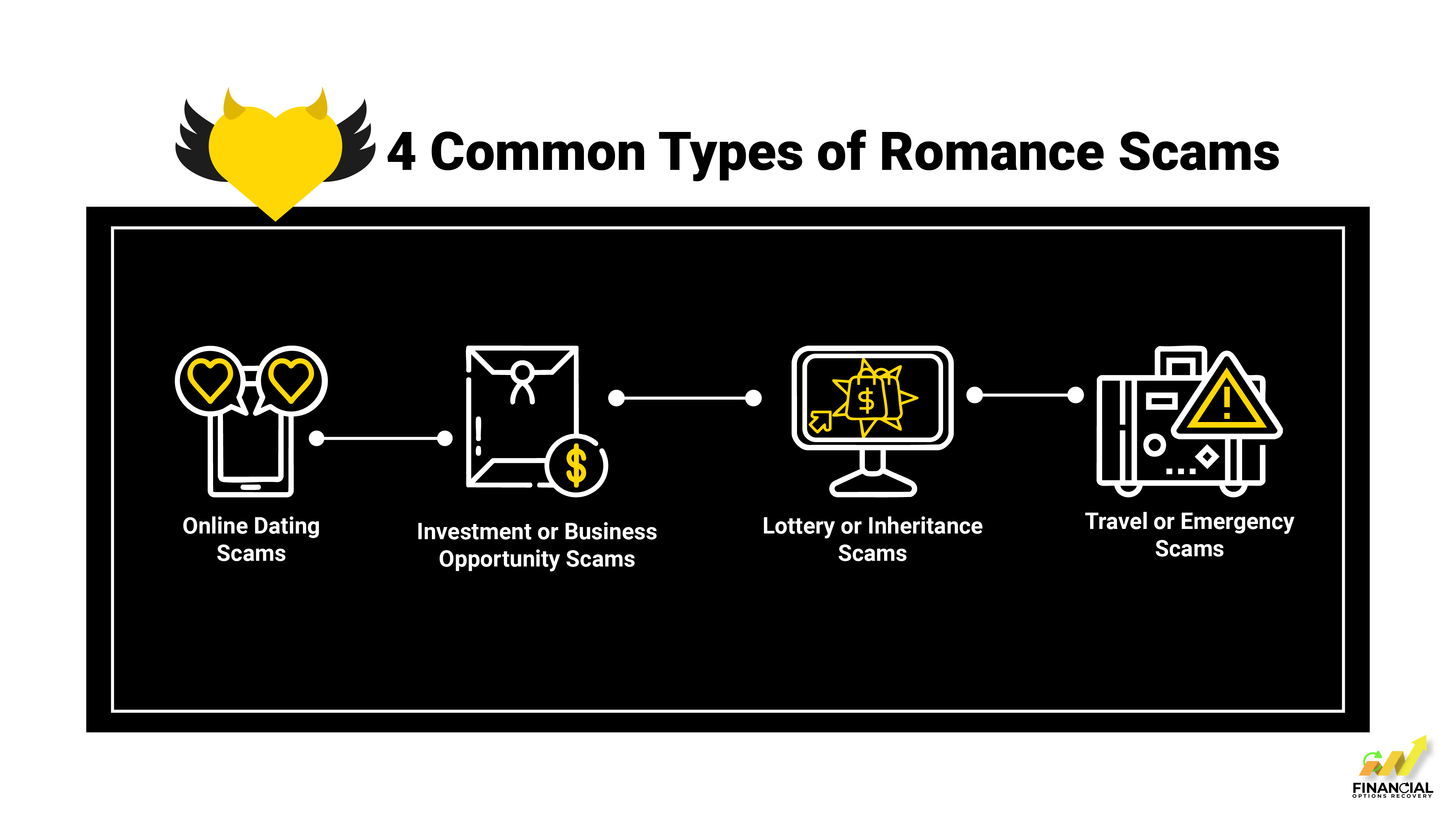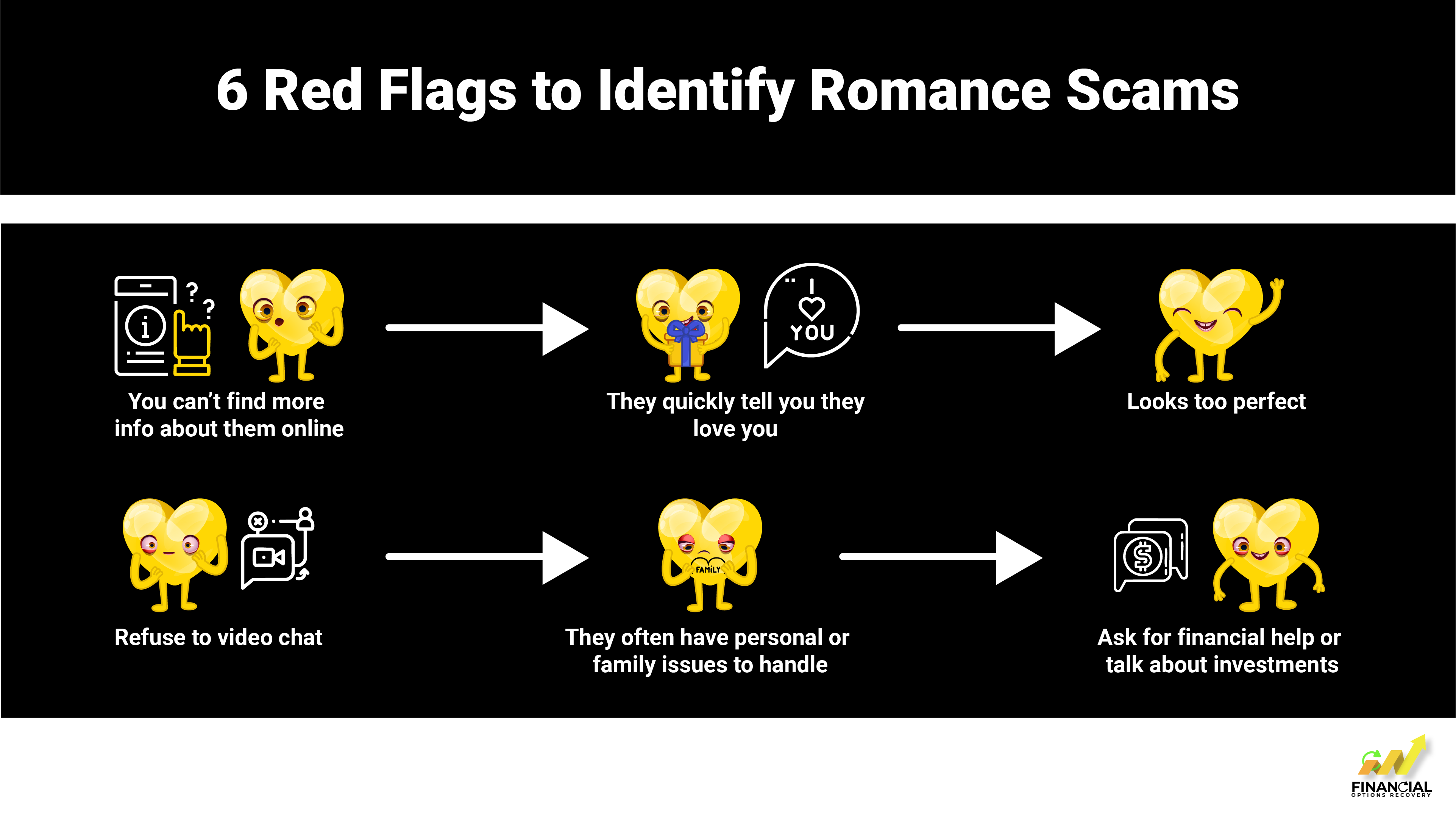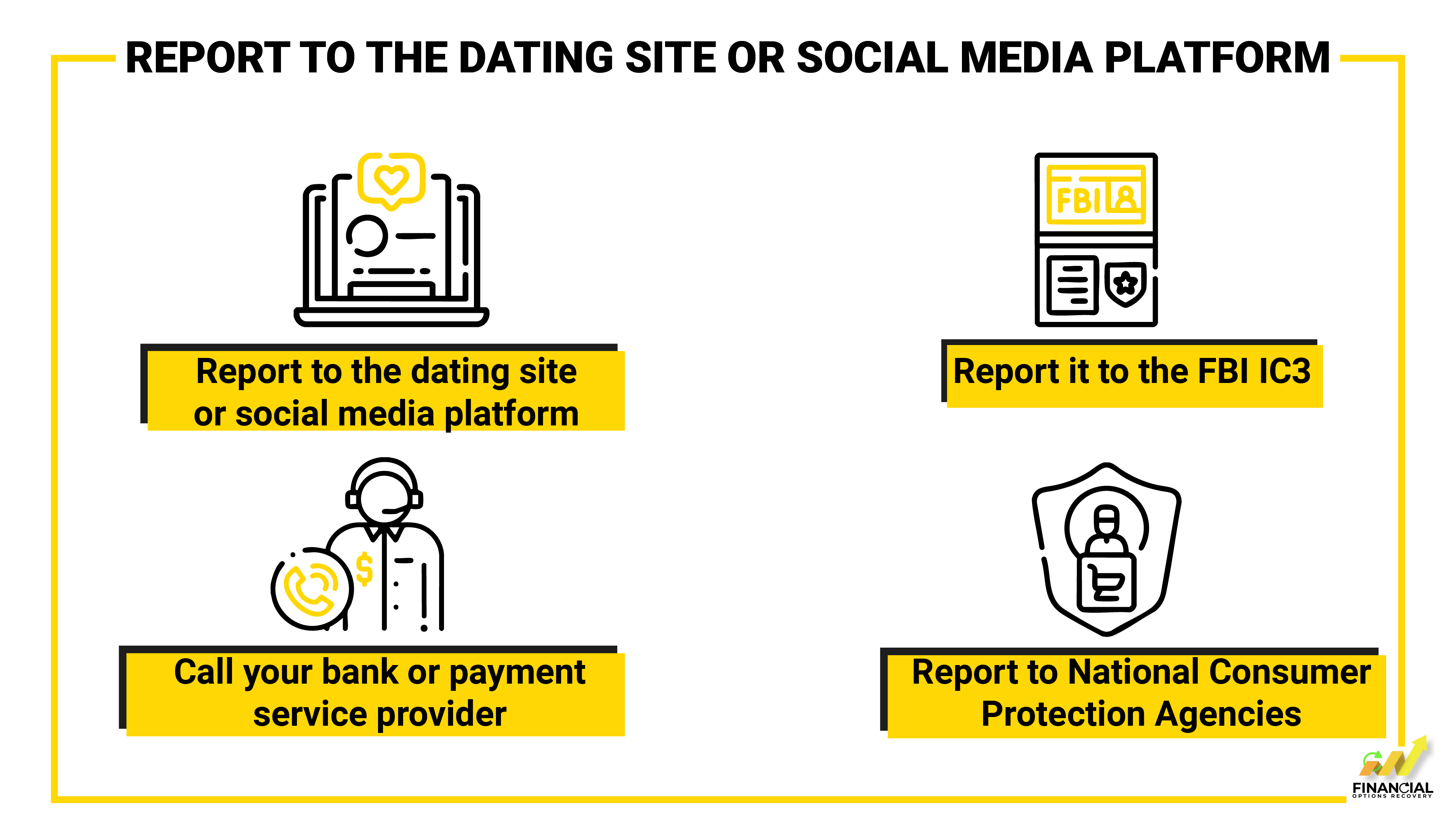
Have you ever thought about how much technology has changed the way we connect with others? Today, building relationships, finding love, and making new friends has become easier than ever, all through the power of the internet. But with all these new relationships, have you ever considered the dangers?
What if the individual you are reaching out to isn't as they portray themselves? Behind the hope of love and friendship,there can exist deception, then there are what we have come to refer to as "romance scams."
Romance scams are more prevalent than you realize, and many unsuspecting people fall victim to them. The emotional and financial devastation can be too much, and you may end up feeling cheated and exposed.
But don't worry, there are ways to keep yourself safe. Here in this blog, we will illustrate to you how to identify signs of romance scams based on real-life scenarios so that you can keep yourself safe and secure online.
A romance scam is an internet scam in which a person fraudulently purports to have a romantic interest for the sole reason of manipulating and taking emotional and financial advantage of the other.
They typically start on dating sites, social media, or even as random messages. The aim of the scammer is usually to win the trust and affection of the victim and then utilize such trust to steal money or sensitive information.
Romance scams typically follow a predictable sequence, as detailed in the table below.
|
Stage |
Description |
Examples |
|
1. Building Trust |
|
"Hi, my name is Tom, and I'm a U.S. Army medic overseas at the moment. I noticed your profile and couldn't help but say hello." |
|
2. Building an Emotional Connection |
|
"I've never felt this way about anyone. You're special. I already see us having a future." |
|
3. Introducing a Crisis |
|
My mother recently underwent surgery, and the hospital will not release her unless we pay the outstanding bill. I am so stressed, do not know who else to approach but you." |
|
4. Escalating the Requests |
|
"Visiting you to see you cost me more to travel than I expected. Send a little more, please. I will pay you back." |
|
5. Avoiding Exposure |
|
"I'd like to video call, but the internet is terrible here. Can we just keep messaging for now?" |
|
6. Vanishing Without a Trace |
|
No goodbye. No explanation. One day, out of nowhere, they're not responding, and their page has been removed. |
Here are some of the most common types of romance scams:

The scammer uses a false profile through a dating site and builds trust while forming a romantic relationship. Soon after, the scammer requests money for emergencies or travel.
Once the romance is fluent, the scammer motivates the victim to invest in a fictional business opportunity or just a silly investment.
The scammer tells the victim that they won a lottery or got life insurance money that they will access upon paying stated fees. Such requests for fees are made purposely to victimize people emotionally.
The scammer deceives the victim by promising to return to his home country after the travel expense is met, or by inventing a sudden tragedy, like a relative dying of a heart attack, and asking for money to cover the funeral or memorial costs.
Romance scams are increasing, and scammers target vulnerable people who are looking for true connections. Be aware of the warning signs to avoid falling victim. Below six main red flags to watch out for when communicating with someone online:

Identifying these behaviors early and being cautious in approaching online relationships can decrease the chances of getting scammed in a romance scam.A real-life example is shared in this detailed romance scam case study, where a victim lost a significant amount to a scammer before managing to recover part of the funds.
Dating scams or Romance scams victims can protect themselves by staying alert and taking deliberate precautions. The following guidelines will help you in avoiding Online Romance Scams.
Don’t share your address, phone number, or financial details until you truly know and trust someone. Scammers often use “getting to know you” as a cover for collecting sensitive information.
Don't get emotionally attached too quickly. Take your time to get to know someone. Scammers often move quickly to form a bond with you and use that to fool you.
If someone whom you met online asks for money or gifts, refuse firmly. Scammers usually try to create an urgency: a sick relative or something like a financial crisis.
Contact the person on the platform where you have met. Scammers will try to get you off the app or site to private messaging apps or email so that they can avoid detection.
Listen to your instincts. If something feels off or too good to be true, it probably is. Listen to your feelings; if you feel uncomfortable, step back.
When you detect someone who seems suspicious or violates the rules and policies of the platform, report their profile immediately. Most dating platforms maintain some form of reporting misconduct settings.
Tip: Reporting scams helps protect others from falling victim to the same person.
The recommended safety measures will protect your safety during your online dating experience.
When there’s a suspicion of being targeted or victimized by an online romance scam, report it without delay. Here are the steps to take:

If you suspect that you have become a victim of an online romance scam or if you suspect that you are a target, it is likewise important to report it promptly. Here are the steps to follow:
Examples: Tinder, Bumble, OkCupid, etc.
By reporting a romance scam, you’re contributing to efforts to stop these fraudsters and protect others from similar scams.
Recovering money lost in a romance scam can be challenging, especially when cryptocurrency or international transfers are involved. In many cases, scammers use complex methods to hide their tracks, making it hard for victims to get funds back on their own.
Working with experienced scam recovery professionals can improve the chances of tracing transactions, gathering evidence, and collaborating with law enforcement. Services like Financial Options Recovery have helped victims investigate fraud, track stolen assets, and take steps toward recovery. Even if success is not guaranteed, professional assistance can provide guidance, reduce stress, and help you make informed decisions during a difficult time.
Nowadays, with so many connections happening online, it’s not always easy to tell who’s being real and who’s just pretending. Romance scams don’t just steal money, they ruin people's trust, hope, and emotional well-being. But here's the truth: most people don’t talk about the shame of falling for a scam. It is one of the biggest hurdles to healing.
And that’s what scammers count on, your silence.
By talking about it, sharing your story, and reporting it, you not only take back your power but also break the cycle for others. Vulnerability isn't weakness, it’s bravery. Real love will never ask you to prove your worth with money. It asks for time, patience, and authenticity.
Stay curious, stay cautious, and most importantly, stay kind to yourself. When the impact feels overwhelming, reaching out for professional help can provide clarity, support, and a path toward possible recovery.
Yes. Internet scammers establish fake online profiles through all major social media platforms, including Facebook and Instagram, and use LinkedIn to deceive people.
This could be a sign of a money mule scam where they use you to move stolen funds. Never accept or forward money from unknown sources.
Not always. Some criminals deceive their victims into revealing personal information, which scammers will use for identity theft purposes.
Whether someone recovers money after getting scammed depends on the payment method they chose for the transaction. You must contact your bank as well as the proper authorities right away to consider recovery options.
Approach the situation with empathy. Provide evidence, educate them on scams, and encourage them to stop communicating with the scammer.